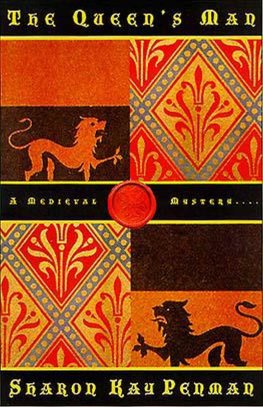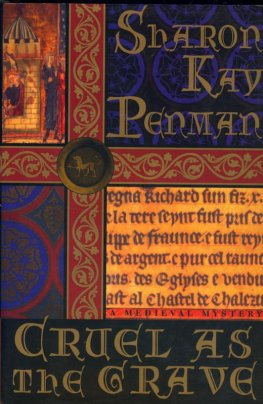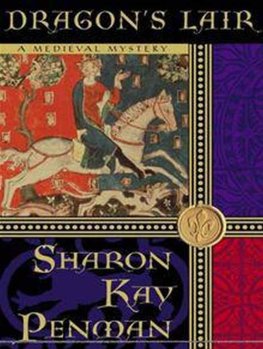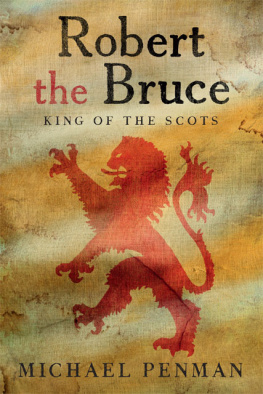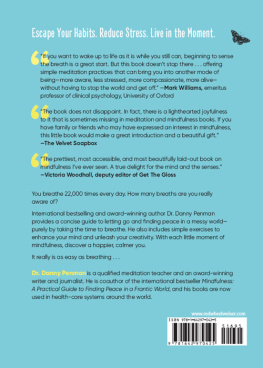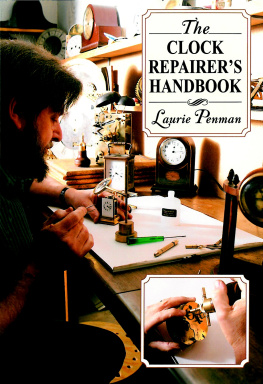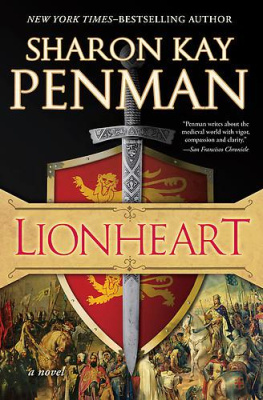Sharon Penman - Time and Chance
Here you can read online Sharon Penman - Time and Chance full text of the book (entire story) in english for free. Download pdf and epub, get meaning, cover and reviews about this ebook. genre: Adventure. Description of the work, (preface) as well as reviews are available. Best literature library LitArk.com created for fans of good reading and offers a wide selection of genres:
Romance novel
Science fiction
Adventure
Detective
Science
History
Home and family
Prose
Art
Politics
Computer
Non-fiction
Religion
Business
Children
Humor
Choose a favorite category and find really read worthwhile books. Enjoy immersion in the world of imagination, feel the emotions of the characters or learn something new for yourself, make an fascinating discovery.

- Book:Time and Chance
- Author:
- Genre:
- Rating:3 / 5
- Favourites:Add to favourites
- Your mark:
- 60
- 1
- 2
- 3
- 4
- 5
Time and Chance: summary, description and annotation
We offer to read an annotation, description, summary or preface (depends on what the author of the book "Time and Chance" wrote himself). If you haven't found the necessary information about the book — write in the comments, we will try to find it.
Time and Chance — read online for free the complete book (whole text) full work
Below is the text of the book, divided by pages. System saving the place of the last page read, allows you to conveniently read the book "Time and Chance" online for free, without having to search again every time where you left off. Put a bookmark, and you can go to the page where you finished reading at any time.
Font size:
Interval:
Bookmark:
Sharon Kay Penman
Time and Chance
PROLOGUE
It began with a shipwreck on a bitter-cold November eve in Gods Year 1120. The English king Henry, son of William the Bastard, conqueror of England, lost his only lawfully begotten son in the sinking of the White Ship. In his despair, he named his daughter Maude, widow of the Holy Roman Emperor, as his heir. But his lords balked at being governed by a woman, and when the old king died, Maudes cousin Stephen seized the throne.
Stephen was not feared by his lords, who dismissed him as a mild man, gentle and good, who did no justice. When the Empress Maude and her bastard brother Robert, the Earl of Gloucester, led an army onto English shores, many rallied to her cause. Even more served only themselves or the Devil. Outlaws roamed the roads and barons became bandits, raising up stone castles by forced labor, emerging from these wolf lairs to raid towns and plunder the countryside. Women, pilgrims, priests-none were spared by the lawless and the damned. Because men feared to venture into the fields, the earth was not tilled, crops did not grow, and hunger stalked the land. In this wretched way did nineteen years pass, years of suffering and anarchy, and people said openly that Christ and his saints slept.
The Empress Maude failed in her attempt to reclaim her stolen crown. But by her marriage to Geoffrey, Count of Anjou, she had given birth to a son who vowed to recover his lost birthright. He called himself Henry Fitz Empress and men began to hope that he might deliver them from their misery. It was said that he was Fortunes favorite; when that was reported to him, he said a man makes his own luck and some thought that was blasphemy. He was only nineteen when he stunned Christendom by wedding Eleanor, the beautiful and headstrong Duchess of Aquitaine, less than two months after shed been freed from her marriage to the King of France. He then turned his gaze upon Stephens unhappy realm. Within a twelvemonth, he had forced Stephen to recognize him as the rightful heir, and it was agreed that Stephen would rule for the rest of his days and then Henry would be king. In less than a year, it came to pass. He was but one and twenty when he was crowned as the second Henry to rule England since the Conquest, and the people rejoiced, for he promised them justice and peace.
CHAPTER ONE
July 1156
Chinon Castle
Touraine, France
As the King of England crossed the inner bailey of Chinon Castle, his brother watched from an upper-story window and wished fervently that God would smite him dead. Geoffrey understood perfectly why Cain had slain Abel, the firstborn, the best-beloved. Harry was the firstborn, too. There were just fifteen months between them, fifteen miserable months, but because of them, Harry had gotten it all-England and Anjou and Normandy-and Geoffrey had naught but regrets and resentments and three wretched castles, castles he was now about to forfeit.
Hed rebelled again, and again hed failed. He was here at Chinon to submit to his brother, but he was not contrite, nor was he cowed. His heart sore, his spirit still rebellious, he began to stalk the chamber, feeling more wronged with every stride. Why should Harry have the whole loaf and he only crumbs? What had Harry ever been denied? Duke of Normandy at seventeen, Count of Anjou upon their fathers sudden death the following year, King of England at one and twenty, and, as if that were not more than enough for any mortal man, he was wed to a celebrated beauty, the Duchess of Aquitaine and former Queen of France.
Had any other woman ever worn the crowns of both England and France? History had never interested Geoffrey much, but he doubted it. Eleanor always seemed to be defying the natural boundaries of womanhood, a royal rebel who was too clever by half and as willful as any man. But her vast domains and her seductive smile more than made up for any defects of character, and after her divorce from the French king, Geoffrey had attempted to claim this glittering prize, laying an ambush for her as she journeyed back to Aquitaine. It was not uncommon to abduct an heiress, then force her into marriage, and Geoffrey had been confident of success, sure, too, that hed be able to tame her wild nature and make her into a proper wife, dutiful and submissive.
It was not to be. Eleanor had evaded his ambush, reached safety in her own lands, and soon thereafter, shocked all of Christendom by marrying Geoffreys brother. Geoffrey had been bitterly disappointed by his failure to capture a queen. But it well nigh drove him crazy to think of her belonging to his brother, sharing her bed and her wealth with Harry-and of her own free will. Where was the justice or fairness in that?
Geoffrey was more uneasy about facing his brother than hed ever admit, and he spun around at the sound of the opening door. But it was not Harry. Their younger brother, Will, entered, followed by Thomas Becket, the kings elegant shadow.
Geoffrey frowned at the sight of them. As far back as he could remember, Will had been Harrys lapdog, always taking his side. As for Becket, Geoffrey saw him as an outright enemy, the kings chancellor and closest confidant. He could expect no support from them, and well he knew it. I suppose youre here to gloat, Will, as Harry rubs my nose in it.
No, Im here to do you a favor-if youve the wits to heed me. The most cursory of glances revealed their kinship; all three brothers had the same high coloring and sturdy, muscular build. Wills hair was redder and he had far more freckles, but otherwise, he and Geoffrey were mirror images of each other. Even their scowls were the same. Harrys nerves are on the raw these days, and hes in no mood to put up with your blustering. So for your own sake, Geoff, watch your tongue-
Poor Harry, my heart bleeds for his raw nerves, in truth, it does! Do you never tire of licking his arse, Little Brother? Or have you acquired a taste for it by now?
Color seared Wills face. Youre enough to make me believe those tales of babes switched at birth, for how could we ever have come from the same womb?
Let him be, lad. Thomas Becket was regarding Geoffrey with chill distaste. As a dog returneth to his vomit, so a fool returneth to his folly.
You stay out of this, priest! But then, Geoffrey said with a sneer, you are not a priest, are you? You hold the chancellorship, yet you balk at taking your holy vows now why is that?
I serve both my God and my king, Becket said evenly, with all my heart. But you, Geoffrey Fitz Empress, serve only Satan, even if you know it not.
Geoffrey had no chance to retort, for the door was opening again. A foreigner unfamiliar with England would not have taken the man in the doorway for the English king, for he scorned the trappings of kingship, the rich silks and gemstones and furred mantles that set men of rank apart from their less fortunate brethren. Henry Fitz Empress preferred comfort to style: simple, unadorned tunics and high cowhide boots and mantles so short that hed earned himself the nickname Curtmantle. Equally indifferent to fashions dictates and the opinions of others, Henry dressed to please himself, and usually looked more like the kings chief huntsman than the king.
To Geoffrey, who spent huge sums on his clothes, this peculiarity of his brothers was just further proof of his unfitness to be king. Henry looked even more rumpled than usual today, his short, copper-colored hair tousled and windblown, his eyes slate-dark, hollowed and bloodshot. Mayhap there was something to Wills blathering about Harrys raw nerves after all, Geoffrey conceded. Not that he cared what was weighing Harry down. A pity it was not an anchor.
What did trouble Geoffrey, though, was his brothers silence. The young king was notorious for his scorching temper, but those who knew Henry best knew, too, that these spectacular fits of royal rage were more calculated than most people suspected, deliberately daunting. His anger was far more dangerous when it was iced over, cold and controlled and unforgiving, and Geoffrey was soon squirming under that unblinking, implacable gaze. When he could stand the suspense no longer, he snapped, What are you waiting for? Lets get it over with, Harry!
Font size:
Interval:
Bookmark:
Similar books «Time and Chance»
Look at similar books to Time and Chance. We have selected literature similar in name and meaning in the hope of providing readers with more options to find new, interesting, not yet read works.
Discussion, reviews of the book Time and Chance and just readers' own opinions. Leave your comments, write what you think about the work, its meaning or the main characters. Specify what exactly you liked and what you didn't like, and why you think so.

